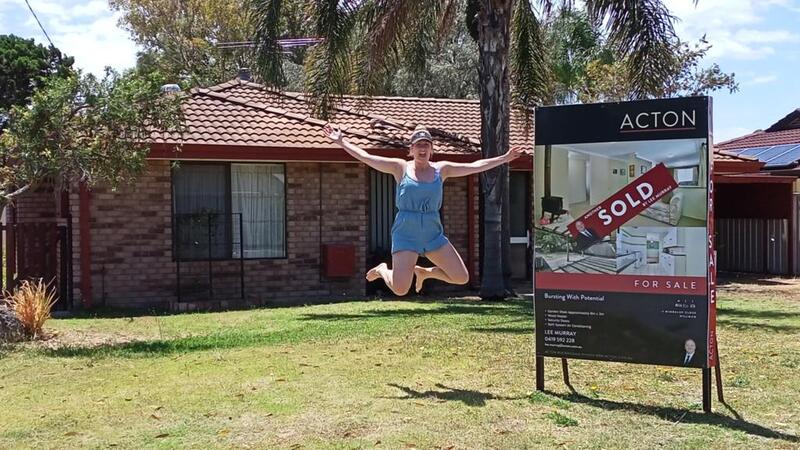The key factor putting a floor under property prices
By Tawar Razaghi & SSB
Australia’s low unemployment rate is a key factor in putting a floor under property prices, experts say, but that could be at risk if interest rates rise too high, too fast.

Home values fell nationally for the second month in a row in June on CoreLogic figures as the first two rate hikes started to bite into household budgets with another expected on Tuesday afternoon when the Reserve Bank announces its next cash rate move.
But the country’s strong jobs market, which has kept the unemployment rate below 4 per cent, a figure not seen since the mid-’70s, has helped support mortgage repayments, kept distressed property listings off the market and put a floor under price falls.
CoreLogic’s head of research Tim Lawless said it was unlikely, in the current environment, to see households fall behind on mortgage repayments and be forced to sell their home at a loss.
“With a jobs market this tight, it’s pretty rare to see households enter into mortgage arrears despite rate increases and high inflation,” Lawless said.
“Unemployment has been trending below 4 per cent. These are the lowest unemployment rates we’ve seen in a generation. The last time we saw unemployment this low was in the mid-’70s.”
But Lawless said the unemployment rate was at risk of increasing in the next 12 months, depending on how fast and high the Reserve Bank increases the interest rate.
“It just speaks to the uncertainty of where the cash rate lands and how fast it gets there.”
Lawless said if the cash rate moved above the 2.5 to 3 per cent range, the economy could be pushing into a contraction, risking jobs and triggering a higher employment rate.
“If the cash rate moves above 2.5 or 3 per cent range, that would be arguably pushing the economy into a contraction,” he said.
“Chances are it is going to result in a weaker economic performance and loosening in labour markets,” Lawless said. “If that’s the case, you’d have to imagine a larger proportion of home owners would be falling behind on their repayments and having to sell their property in a falling market.”
Credit ratings agency Moody’s expects delinquency rates to increase moderately for the remainder of 2022 because of rising inflation, higher interest rates and worsening housing market conditions.
PRD chief economist Dr Diaswati Mardiasmo said strong demand on a number of fronts was also helping put a floor on property prices.
“There are so many jobs vacant ... companies are struggling to find people,” Mardiasmo said. “Our wages’ growth is also on the up. Many people are getting pay rises, and people who have been able to switch jobs and take advantage of the labour with a 10 to 15 per cent salary increase.”
She said rising interest rates were a factor that could weigh on demand, and with it prices, but households’ strong savings buffers would help safeguard the property market from a deeper downturn.
“The flow of our money that has gone into mortgage offset accounts and principal repayments is at its highest level at the moment over the past five quarters in comparison to the past 10 years,” Mardiasmo said.
“If the cash rate goes up, it’s more of a rebalancing of where the flow of the money goes. You might see a slight change in that more of it goes to interest and a little less in the offset and principals.”
Mardiasmo said distressed listings would increase and price falls would accelerate if the cash rate exceeded pre-pandemic levels after households borrowed record levels of debts.
“We probably can handle all the way up to 2 or 2.5 [per cent] if you stretch but if you go anywhere above 3 that’s when you would see distressed listings growing.”
Domain’s chief of research and economics Dr Nicola Powell said the country would need a broad and high unemployment rate to see distressed listings increase and big price falls.
“When you see people being forced to sell, that’s what can really rock property prices,” Powell said.
“It is unlikely for us to see an increase in distressed sales and listings due to the fact that other things in the economy are going against that.
“We have a very low unemployment rate and competitive jobs market and to see a material lift in distressed listings would see a high unemployment rate.”
Here is one way to save on costs and charges
Real estate agents, property owners, developers, builders and investors can now present land, residential, house & land packages, commercial and business properties for Sale, Lease, Swap or Investment 100% Fee Free.
At SSB there are no registration, monthly or annual costs, no listing or lead charges and no marketing fees, including zero costs for multi upload listings.
A further value benefit significantly increase brand awareness, market reach and client capture connecting directly with buyers, investors, tenants, sellers and swappers worldwide.
Buyers and renters benefit from the competitive savings owners and agents can pass on.
SSB is not an agent, reseller or lead generator, we are an Australian owned Melbourne based FREE service (in addition to your listing programmes) providing you with an additional online avenue that enhances current sales campaigns adding significant market reach, exposure and capture and adding value to income streams by connecting directly with owners, investors, developers and buyers.